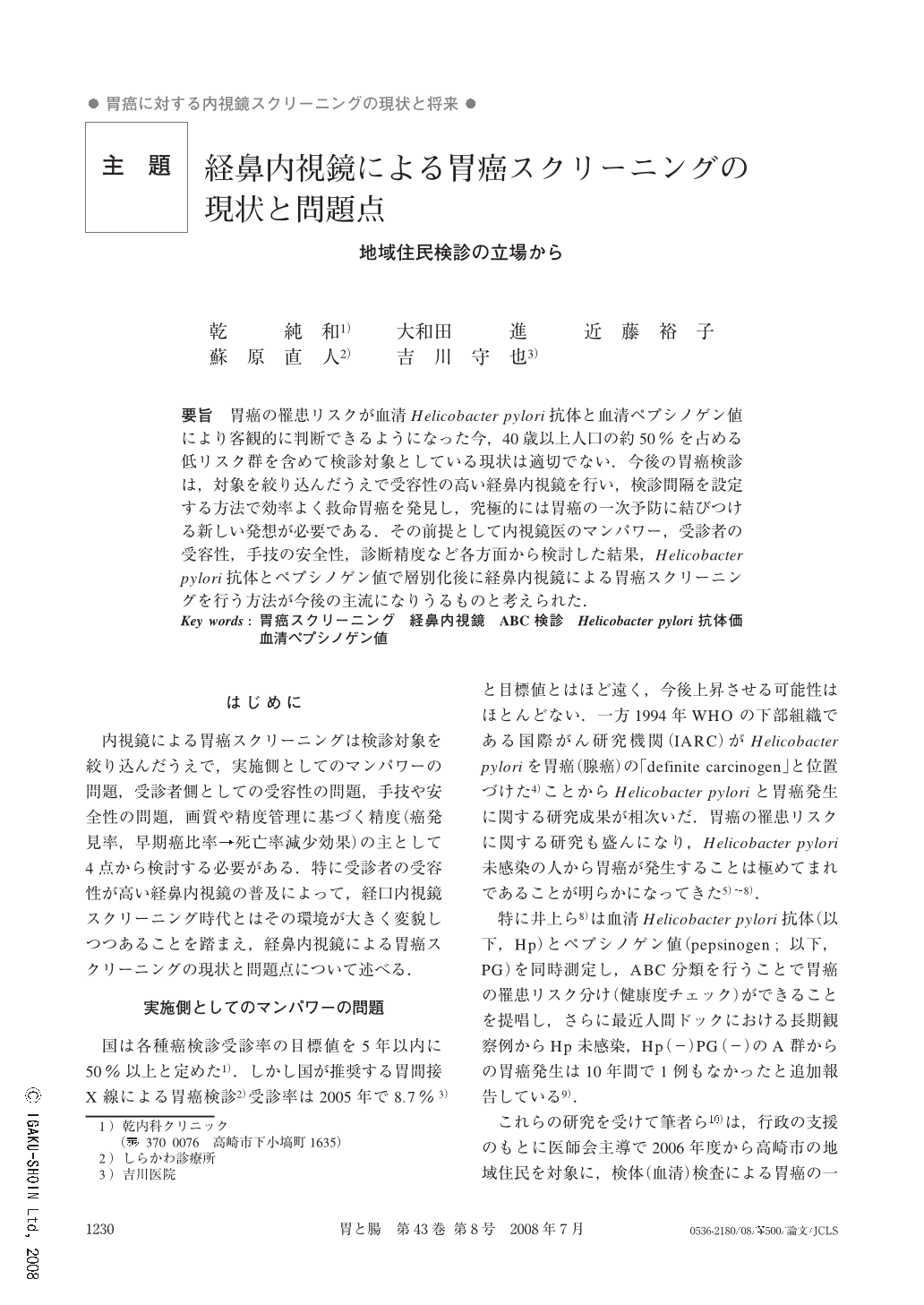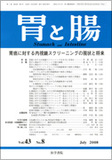Japanese
English
- 有料閲覧
- Abstract 文献概要
- 1ページ目 Look Inside
- 参考文献 Reference
- サイト内被引用 Cited by
要旨 胃癌の罹患リスクが血清Helicobacter pylori抗体と血清ペプシノゲン値により客観的に判断できるようになった今,40歳以上人口の約50%を占める低リスク群を含めて検診対象としている現状は適切でない.今後の胃癌検診は,対象を絞り込んだうえで受容性の高い経鼻内視鏡を行い,検診間隔を設定する方法で効率よく救命胃癌を発見し,究極的には胃癌の一次予防に結びつける新しい発想が必要である.その前提として内視鏡医のマンパワー,受診者の受容性,手技の安全性,診断精度など各方面から検討した結果,Helicobacter pylori抗体とペプシノゲン値で層別化後に経鼻内視鏡による胃癌スクリーニングを行う方法が今後の主流になりうるものと考えられた.
Today, the serum test of serum H. pylori antibody (Hp) and pepsinogen levels (PG) has been used to assess the risk of gastric cancer development. As a national project, mass screening for gastric cancer including subjects over 40 years of age, half of whom are Hp (-) PG (-) and at lowest risk of developing gastric cancer, is a nonsense program. In the future, a mass screening program for gastric cancer, including only subjects at higher risk, applying more tolerable transnasal endoscopy, using an optimal interval for endoscopy, and more effective detection of curable gastric cancer must be introduced. The final goal of mass screening must facilitate the primary prevention of gastric cancer. In this review of mass screening applying endoscopy, the several issues of man power, tolerability for subjects, safety of procedures and diagnostic accuracy were studied. Finally, we conclude that the ABC stratification strategy using Hp and PG and applying transnasal endoscopy has the potential to become an efficient means of mass screening for gastric cancer.

Copyright © 2008, Igaku-Shoin Ltd. All rights reserved.


